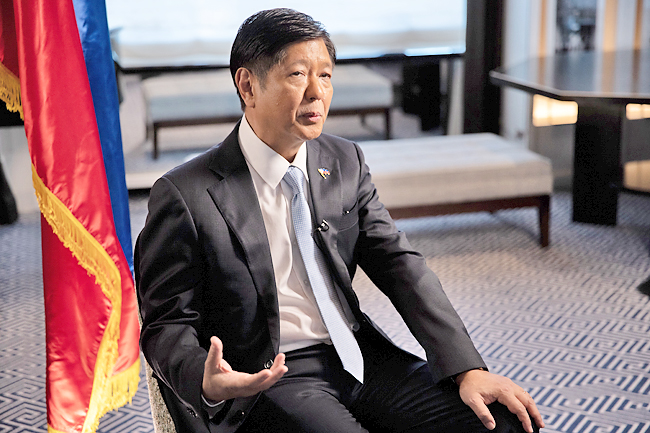AP – Looking to “reintroduce the Philippines” to the world, new President Ferdinand Marcos Jr has ambitious plans for his nation on the international stage and at home – if, that is, the twin spectres of pandemic and climate change can be overcome or at least managed.
And if he can surmount the legacies of two people: his predecessor, and his father.
He also wants to strengthen ties with both the United States (US) and China – a delicate balancing act for the Southeast Asian nation – and, like many of his fellow leaders at the United Nations (UN) this week, called on the countries that have caused global warming to help less wealthy nations counteract its effects.
Marcos, swept into office this spring, is already drawing distinctions both subtle and obvious between himself and his voluble predecessor, Rodrigo Duterte, who alienated many international partners with his violent approach to fighting drug trafficking and the coarse rhetoric he used to galvanise supporters.
Asked if Duterte went too far with his lethal drug crackdown, Marcos redirected the criticism toward those who carried out the plan.
“His people went too far sometimes,” Marcos told The Associated Press on Friday. “We have seen many cases where policemen, other operatives, some were just shady characters that we didn’t quite know where they came from and who they were working for. But now we’ve gone after them.”

Marcos, 65, sat for a wide-ranging interview in New York on the sidelines of the UN General Assembly’s annual leaders’ meeting. Three months into his administration, he seemed energetic and enthusiastic – and eager to project his vision for the nation beyond its borders.
On Thursday, he met with US President Joe Biden in a bid to strengthen the sometimes complicated ties that have ebbed and flowed between the two nations since the Philippines spent four decades as an American colony in the early 20th Century.
“There have been bits and pieces where they were not perhaps ideal,” Marcos said. “But in the end, that overall trajectory has been to strengthen and strengthen and strengthen our relationship.”
In addition to Duterte, Marcos also must draw distinctions between himself and the most iconic figure in the Philippines’ public sphere: his late father, whose name he shares. Ferdinand Marcos Sr, hero to some and plundering dictator to others, ruled from the 1960s to the 1980s, including a tumultuous period of martial law and repression. He made the family reputation an indelible part of Filipino history.
The elder Marcos placed the Philippines under martial law in 1972, a year before his term was to expire. He padlocked Congress and newspaper offices, ordered the arrest of political opponents and activists and ruled by decree.
When it comes to his predecessor, Marcos treads a nuanced political line as well.
Distinguishing himself from Duterte’s in-your-face rule can benefit him at home and internationally, but Duterte’s popularity helped catapult him into office, and the former president’s daughter Sara is Marcos’ vice president.
The extrajudicial killings associated with Duterte’s yearslong crackdown provoked calls that his administration should be investigated from the outside, and he vowed not to rejoin the International Criminal Court – a precept that Marcos agrees with. After all, Marcos asked, why should a country with a functioning legal system be judged from elsewhere?
“We have a judiciary. It’s not perfect,” he said. “I do not understand why we need an outside adjudicator to tell us how to investigate, who to investigate, how to go about it.”






